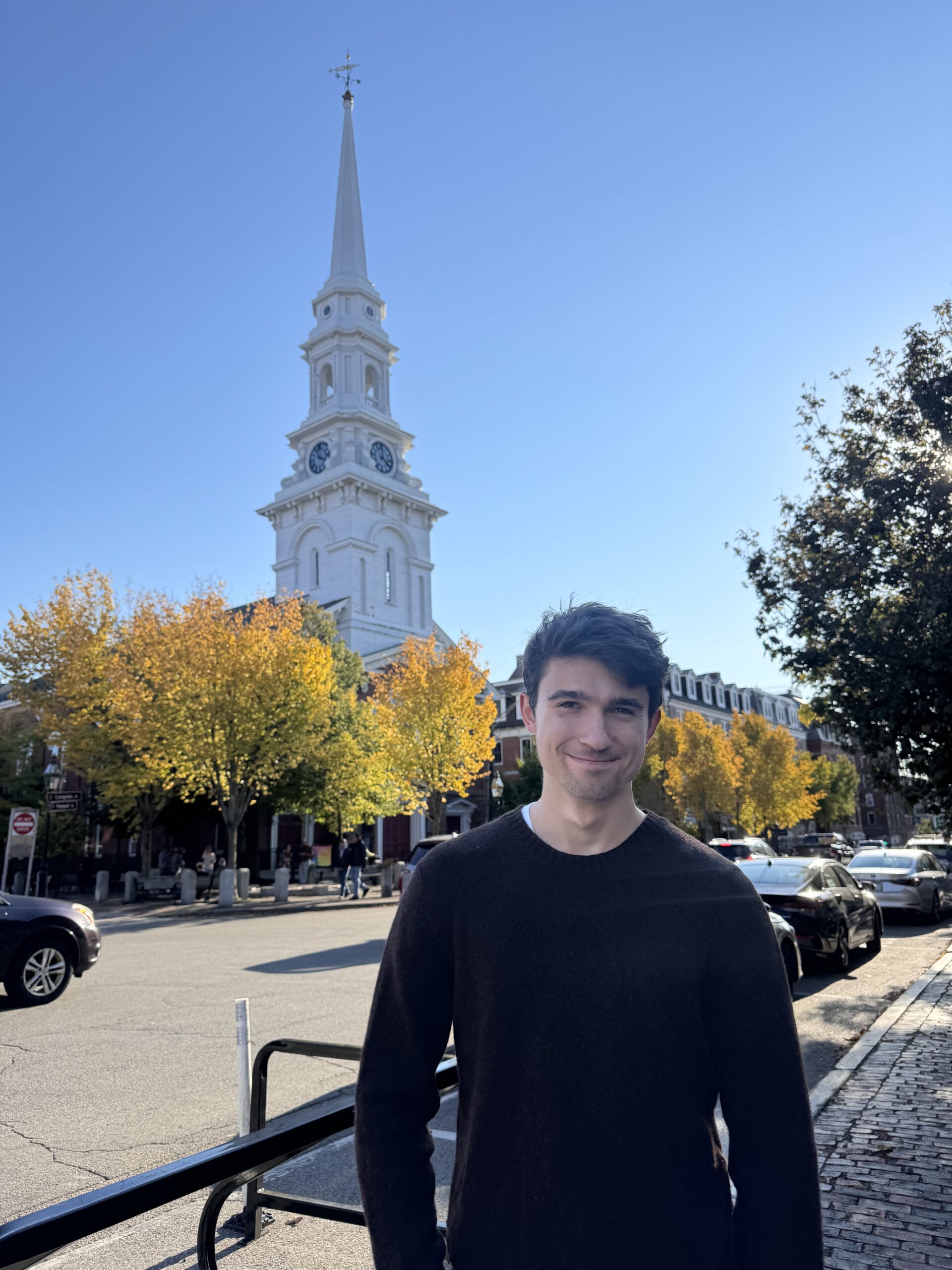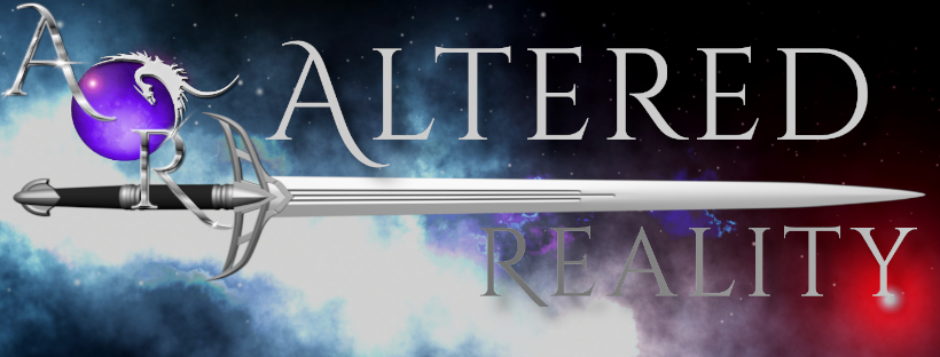It always finds a way to be smoky. I’m not sure we’ve ever seen a fire, and maybe we never will. But it still manages to coat my face thick and sting my eyes to dry tears. The historians and temporal scientists have their theories on how the world got this way, between radiation and atmospheric ignition. My money’s on an asteroid that happened to strike the continent’s artificial carbon sink at the right moment, coiling time into a super-dense nova. I was disregarded, told the positioning of the earth and the strength of the sink made it impossible. I caught a few snickering whispers after I floated the idea in an all-hands meeting: we’re just their collectors after all.
Before the temporal barrier fell and we had to go underground, I wanted to be an English teacher. I wasn’t the biggest reader, but it let me be of use to someone other than myself. Interacting with kids was a bonus, even if it was through tortured worksheets and grammar exercises. It was a life of impact and sweater vests, until it wasn’t.
I give my ashboots a final tug, then limp away from the chronal jump point. I know the mission for the day and where they need me to go. Sending someone back in time is easy; putting them in the right location is harder. So, I enjoy the little walk as much as I can, as much as one could in the burnt-out past.
Some things managed to survive the barrier’s demise. An odd metal structure. A withered tree. A pool of some bioluminescent algae, giving some uncanny jade light to the red landscape. We had to collect some of it a few months ago for examination. After he returned with some glowing samples, what was left of Lee could fit into a shoebox. The temporal biologists took samples of him, too.
They send some of us to collect sociological elements. Stuff like lifestyle items or written documents help the historians piece together what happened and when. That’s separate from the chemical collectors, who take air and water samples for the scientists to know which areas were safer from the barrier’s destruction. Both inorganic, though.
Biologics collection is different. Me and twenty-nine other greybeards get sent back to collect living or near-living matter. If something can survive here, maybe we can figure out how to live above ground again. After some messy trial and error, we figured out how to collect organisms right: Faraday-lead collection boxes, rules on exposure limits, and a ban on leaving anything behind, especially if it’s a part of you.
If we do all of that, and we just happen to be lucky that day, it’s an airtight process. If we don’t: Lee.
I’m coming up on the ridge now. A few more clicks and I’m at my target. The elevation begins to pick up here, and I push the protective padding on my knees to their limits. Everyone in my department knows about my bum leg. When it’s all said and done, and they bother to figure out my pension status, I’ll get some medical support for it. But until then, I’ll limp along, scanning and collecting what they need, hoping my other leg doesn’t go bad, too. This place is dangerous enough as is.
Things were better once, before we had to flee below the surface. I’m old enough to remember that, and hopeful enough to think it can get better. That’s what people have always done after a tragedy: pick up and keep moving. We do it for us, for our kids, and for the far off future we will never experience. Worthy causes for a species too stubborn to die. If this is how I can help, piecing together mementos from a dead planet, I’m going to do it, aching leg and soft scientists be damned. Humanity, crude and special, is worth it.
I make it to the top of the hill, looking over a destroyed community built on the plateau. I let the leg rest for a while and survey the new terrain. Most of it is still rubble, smeared by time back in on itself into an indiscriminate char. But I can see one figure in the mid-range, scanning away diligently at the wreckage. Collectors rarely get sent out in pairs, so an accidental run-in is worth talking about. I stagger down the embankment and make my way over to him.
He’s compact and pale, turning his standard-issue goggles into a dash of cobalt paint on a ghostly canvas. He doesn’t see me until I’m too close, spinning around and pointing his scan rod at me.
“Who?” Standards have been lowered, some might say desperately. But with his yellowing teeth and garbled voice, I have to think they can draw a line somewhere.
“Collector Burkart, serial number sixty-six, operational designation Bravo Yankee.” He pauses and sniffs. “X. Eight hundred. Cee-Dee.” He looks young enough to have grown up entirely underground, his speech a product of AI teachers. A generation raised on all of the tech, all of the “love”, and none of the good sense. That probably explains him still holding his scan rod towards me, as if it could do anything other than upload a grainy radiograph of my circulatory system.
“It’s good to meet you, X. You’re pointing that backwards.” He flips it around before catching himself and holstering it. “What’s your operation for this jump?”
He checks his temp-pad and rattles off his orders. “Standard collection. Sociology. Look for culture.”
“Right.” I figure a compliment is the best way to keep the interaction going, especially seeing how antsy he is to get back to work. “That’s important work. They keep me on biologics, but I know a lot of good sociology collectors.”
His twitching feet seem eager to return to the wreckage, but he pauses before they can take him. “Am sorry about Lee. Seemed good man.”
Word travels fast. Fear travels faster. “He knew the risks, more than anyone,” is the best thing I can say. We weren’t close. None of us really are. But his funeral has found a way of rattling around my brain every time I’ve jumped to the past since. “He was one of the best biological collectors we had.”
He seems relieved to finally turn away. “Yes. Example. Will follow in biologic training.”
What? “X, what do you mean? And speak–” I’m too loud, he’s getting jumpy– “Please, speak clearer. Are you reclassifying to be a biologics collector?”
He swallows and flexes his hands before speaking deliberately. “Y-yes. Need replacement. Me.”
I’m the oldest of our cadre, but even our youngest has to have two decades on this guy. Better to keep the biggest risks within the senior collectors. “X, how long have you been out here?”
He checks his temp-pad again. “Four-eight stan-units. Recalling me in one-two.”
“No, not–” I have to stop myself from letting more frustration out. ‘Stan-units’ must be ‘standard-units’, our measurements for how long we get sent back for. Minutes get weird through the timestream, so we go by some sort of calculation of the moon and gravity. We don’t have to understand it, just read it off of our mission briefings when needed. “I mean how long have you been doing collection runs?”
“Oh.” He doesn’t use his temp-pad this time, but his long pause makes me think he should. “Four. Sixteen started training.”
Sixteen years old. When I was sixteen, I was failing algebra and girls, not doing time collections and hearing gossip about dead co-workers. “You’re young, X. Biologics collecting is dangerous, even more than sociology.”
“Lee,” he says, staring at me through the slits in his goggles.
“Yeah, Lee.” I swallow down something rising in my throat. “He was a good man. He left a lot behind. A wife, children.” I look for any recognition of those concepts in his stony face. “If you still have time on your contract, maybe they’ll let you stay a sociological collector, or transfer to a desk position for a while. But it’s a lot more dangerous as a biologics collector.” I don’t say I think he’s young for the job. I don’t say that I think he shouldn’t have been allowed to transfer. I don’t say his rough boyhood shouldn’t be fodder for the greater good.
“Know!” He stamps his foot, before smoothing his patchwork uniform. “Know. And now you know. So please leave. Have long day.”
We take a moment, looking at each other. Maybe if he got a little more sun, and figured out a face that wasn’t angry, he could be me. He could be my kid. Now, he’s just a dead man walking– no, not even a man, just a boy. I have nothing left to say to him, or at least, nothing that’ll take him off his path. I nod to my future co-worker, my future mourning, and trudge away, leaving him to the past.
Leave him to the past. Lee’s burnt, shriveled body, not even longer than my forearm. Leave him to the past. The way his kids looked, condemned to lives of grief and hypotheticals. Leave him to the past. All of the conditions they make us waive, the injuries we’re supposed to accept as “the cost of doing business.” Leave him to the past.
He hears me before he sees me.
“I know you think this is it!” He turns, ready for me this time. “That this is the peak of your life, the only way of getting out from underground! You’re wrong!”
“Don’t know shit!” We meet almost face-to-face in front of his collections. “About me, life, or what can I do!”
“I know you well enough!”
He scoffs at that, if what he does can be considered a scoff.
“I bet you think you’re being a hero, that this is the noble thing to do for a man in your situation.”
He cocks his head, letting me know his opinions on my reading of him. “How you know that?”
“Because, goddamnit, we all do!” He doesn’t flinch from me this time, but I can still see some recognition in his widening eyes. “We’re all here for a reason, because we think we can make a better world for people back home. But you can die out here, X, and those same people are going to miss you like hell when you do.”
“Only you can do this?” He rises to meet me now, puffing his chest out and sharpening his gaze. I’d be proud of his defiance if this was a different conversation. “Your sacrifice is only that matters?”
“No, God no.” I sigh, the years of experience weighing on my chest. “I’m an old man. I don’t have much waiting for me when I get back. But, you? X, you have your whole life ahead of you, a full life with people who love you.”
“Have no one,” he whispers, just above the constant dull breeze. He breaks eye contact, looking into desolate histories I can’t see.
“X, I’m sure that’s not–”
“HAVE NO ONE!” His scream echoes across the landscape, across each burnt out tree and broken home. If I had my glasses, I could swear I see some tears forming under his goggles. He sniffs, then exhales. “No time for this.” He checks his temp pad and squares his shoulders.
“You can find them, X. They’re out there, I promise. Whatever’s happened, you can build something for yourself. Lee did.” I’m pleading now, more than I’d like, against his resolute stance.
He looks at me, and for the first time, he speaks clearly:
“Lee’s dead.”
He takes a step back and answers the buzzing on his temp pad. His suit sparks and scratches; his form freezes, then fades. He leaves me to the past.
#
I’ve forgotten my temp-pad. Sure, I’m keenly aware of its snug fit against my arm, but I don’t bother to check it. Today’s collections of old tree bark and leaves can wait until tomorrow.
He’s going to die. He’s going to get trained up, he’s going to get sent back, he’s going to make a mistake, and whatever’s left of him will be poked and probed for data. His misshapen life will amount to nothing more than a footnote and lost potential. And the bastards who sent him, the scientists and academics and navel-gazers, will have nothing to say, other than what a shame, what a good kid, let’s honor his sacrifice and get another collector ready to go.
I don’t know where I’m going at this point, dragging out my trip to the past into an infinite contemplation. I do know what I’ll get when I get back: some variation of an ass-chewing for not collecting anything, along with reports from our newest biologics collector that I went crazy on a collection run. So, I’ll take what peace I can get out here.
We went from primordial sludge, to being the dominant species on the planet, to hiding underground. Maybe we lost something along the way, something that made us special. Did losing decency make the temporal barrier break? Mercy? Caution?
No. They lost it. The brains and smiling faces and weak handshakes, content to see us burn alive. And I’m just playing errand boy for their ritual sacrifice, a calculus that lost legitimacy the minute they sent a boy to die.
But not today at least. Whatever today is.
Today, I’ll just find something to amuse myself with in this hell before I go back to another. I’m on a far corner of the town now, far from where I jumped in. I survey the landscape behind me and find nothing of use. But, there is a glimmer in the foreground; something’s shining at me through the ash. I trudge closer, with my knee making itself known the whole way. It’s half-buried in some sulfuric white powder, but I can pick the neck of it up just fine.
It’s a bottle.
It’s a precisely shaped, undestroyed glass bottle with a sloshing brown liquid on the inside. It seems to sweat in my hand, lazily unaware of everything that’s gone wrong outside of it. It’s not procedure to eat or drink on duty and especially not on a collection run. All the brains need are some good scans and no surprises. But here it is: the most perfect bottle of root beer there ever was. Probably the only one still around, too.
I think I remember this brand; it had a smiling dog on the front label. I was allowed one, only one, if I had my chores done and had been good that day. I first asked for it because of the dog. I kept on asking for it because of how it tasted: perfectly sweet and not too bubbly.
The label’s mostly burnt off now, leaving the shadow of a canine smile. Chronal radiation will do that if you’re in it for too long. We were given a preponderance of meds to keep us out here as long as possible; they’ll glow in us long after we’re dead. But the fluid still bubbles beneath the cap, waiting for someone to take it off and enjoy. The one perfection in an imperfect world.
Butterfly effect. Grandfather paradox. Hawking radiation. Everybody has their buzzwords, but they all land on one point: don’t fuck with the timestream. But one small bottle of root beer won’t kill me.
Right?
I’m not a scientist. I’m not an engineer. I’m not even a soldier, and anyone can be one of those with a gun and a reason to kill. I’m just what’s left.
My comms patch beeps. I have 10 standardized time units until they call me back. So five minutes. Or a minute. Or ninety seconds.
I’m not a mathematician either.
I turn around to the flattened world around me. This could’ve been a grocery store, or a school. Maybe even a home. I should feel something light and reassuring about this speck of humanity. Something that doesn’t show up on a collection log.
But it’s the other type of nostalgia; bringing back memories you never wanted to think about again. A warm life. Needs and wants met. The satisfaction of a cool drink on a hot day. How you lived. How you never will again. And everything you’ve done to survive since.
Five standard units left. Better make this count. It’s fine, I reassure myself, no one will miss one root beer. I resolve myself to this one selfish moment after years of service. I am allowed to feel something that isn’t desperation.
I want to feel something that isn’t desperation.
My hand strains on the top; it doesn’t budge.
Goddammit. It’s not a twist off.
I thought they discontinued these. My grubby hands always found a way to get mine open, or at least find an adult to help. I look around me, looking for any hard edge to get the cap off. Three units left.
A molten strand of rebar pokes out of the ground thirty feet away. I nearly trip over myself trying to get there, to get anywhere that’s not now, but the simpler then. The bottle scrapes the edge, taking some of its glass head with it.
Two standard units now. Carefully, no mistakes, just like they would want, I take the jagged edge to my lips. I’ll bleed for this, I don’t mind. I can bleed for life.
One standard unit. The liquid tumbles down and hits my tongue.
Then, some sparks. A flash. A future.
A flame.
Bitter.
About the Author
 P.M. Alexander lives in Washington, D.C., where he enjoys reading and hanging around museums. He is a (failing) student of Russian and considers Tom King, Isaac Asimov, and Alan Moore his favorite writers.
P.M. Alexander lives in Washington, D.C., where he enjoys reading and hanging around museums. He is a (failing) student of Russian and considers Tom King, Isaac Asimov, and Alan Moore his favorite writers.
![]()






